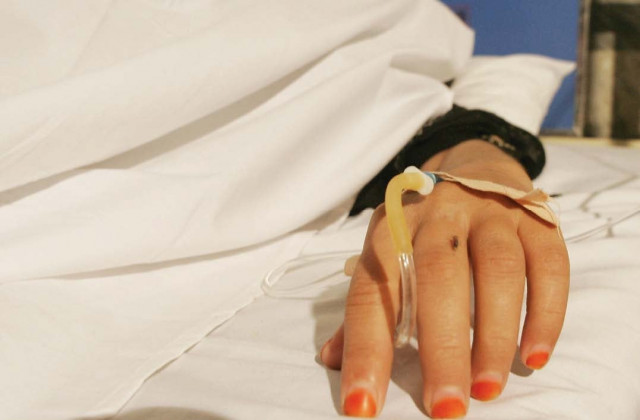Can you still have babies after cancer treatment?
Woman can preserve their fertility by having in vitro fertilization to create embryos, which are frozen and banked.

Can you still have babies after cancer treatment?
Findings published in the Journal of Clinical Oncology found that of nearly 500 cancer survivors aged 18 to 45, 80 percent of men surveyed said their doctor had told them their chemotherapy could affect their future fertility. But only 48 percent of women said the same. In addition, only 14 percent of women said they received information on options to preserve their fertility, versus 68 percent of men.
The gap is likely related to the fact that preserving fertility is more complicated in women than men and techniques for doing so are not as widely available, said the researchers.
"Even in cases when fertility preservation could not be performed, patients - and in particular, women - should be informed about their risk of decreased fertility and their risk of entering menopause prematurely," senior researcher Claudia Lampic, of the Karolinska Institute in Stockholm, told Reuters Health in an email.
Some chemotherapy drugs can damage a woman's eggs or a man's ability to produce normal sperm. Radiation therapy near the reproductive organs, or to the brain, can harm fertility, as can hormonal therapies for breast, prostate and other cancers.
A recent US survey of women diagnosed with cancer when they were 40 or younger found that more than half said they still wanted to have children at the time of their diagnosis. "The options are out there, but the utility is still patchwork right now," Oktay said.
Men can have their sperm frozen and banked before cancer treatment, a relatively quick and simple process that is also comparatively inexpensive. For women, the most common way is to have in vitro fertilization to create embryos, which are then frozen and banked. It's also possible to freeze a woman's eggs and ovarian tissue, but that's still considered experimental and it's not clear how well they work - and they are all more expensive. In addition, harvesting eggs generally means using hormonal treatments to stimulate the ovaries. But that raises a woman's estrogen levels, so women with breast or uterine cancer have not been offered those options.



















COMMENTS
Comments are moderated and generally will be posted if they are on-topic and not abusive.
For more information, please see our Comments FAQ